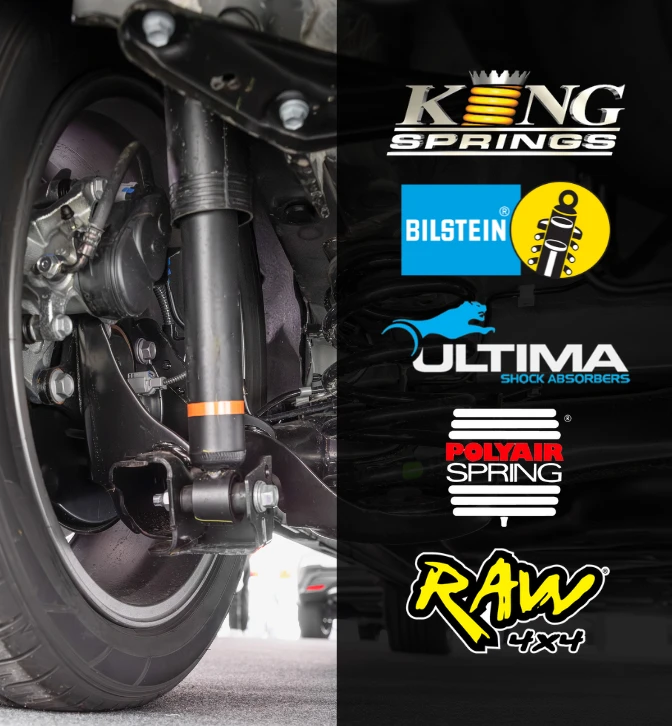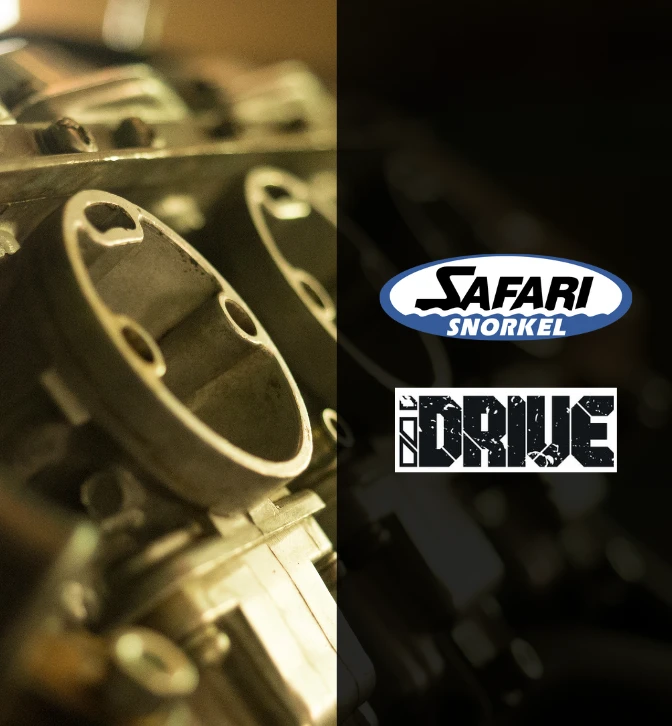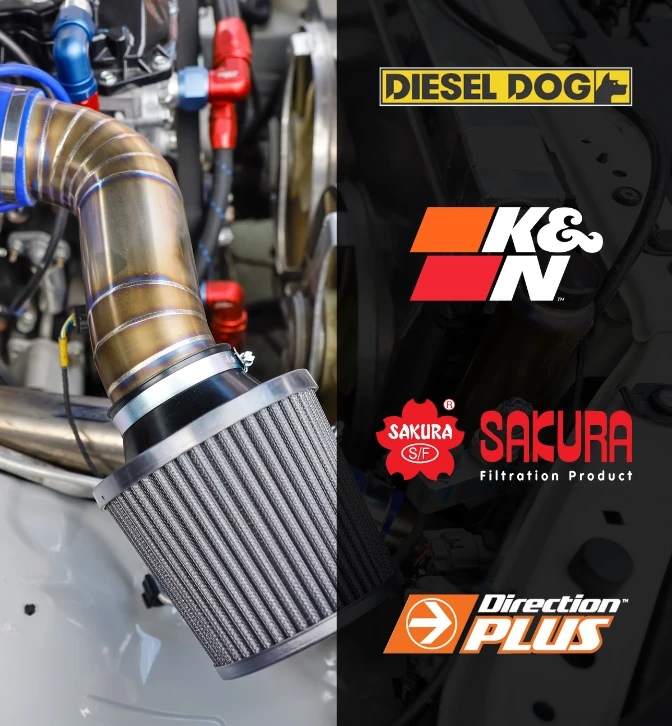-
Exhaust
- Back
- Exhaust
- Performance Exhaust Systems
- Standard Replacement Exhaust Systems
-
Exhaust Accessories
- Exhaust Bolts, Nuts & Studs
- Clamps
- Collectors
- Exhaust Reducers & Couplers
- Exhaust Tips
- Flange Plates
- Exhaust Flex Bellows
- Exhaust Brackets & Hanger Rods
- Gaskets
- Heat Tape
- Mandrel Bends
- O2 Sensors & Exhaust Temperature Sensor Accessories
- Paint
- Muffler & Exhaust Mounting Brackets
- Tube
- X & Y Pipes
- All Exhaust Accessories Products
- Catalytic Converters
- DPF Filters
- Exhaust Extractors / Headers
- Universal Mufflers & Hotdog Mufflers
- All Exhaust Products
![Exhaust]()
- Suspension
- Performance
- Towing
- Filters
- Truck
- On Sale
- About Us
- Blog
- Contact Us
What Does a Muffler Do and How Does It Work? - A Full Guide to Car Mufflers
Date Posted: 26 April 2024
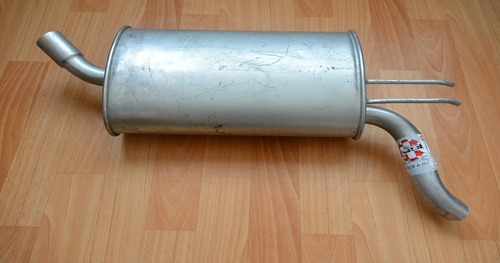
If you asked a regular person, “What does a muffler do?” they’d probably say they have something to do with the sound of your car. While true, that’s not the whole story. Car mufflers are essential components of a vehicle's exhaust system that affect more than just the exhaust note. In this guide, we will explore the intricacies of car mufflers, from their role to the different types that exist, and discuss the effectiveness of aftermarket muffler upgrades.
What a Car Muffler Does
Let’s start with the basics - what does a muffler do? A muffler serves two basic purposes:
- Noise reduction
- Emission reduction
Additionally, as a muffler is part of the overall exhaust system, it can also positively or negatively impact engine performance by reducing or increasing backpressure. So let’s delve a little deeper.
How a Muffler Reduces Noise
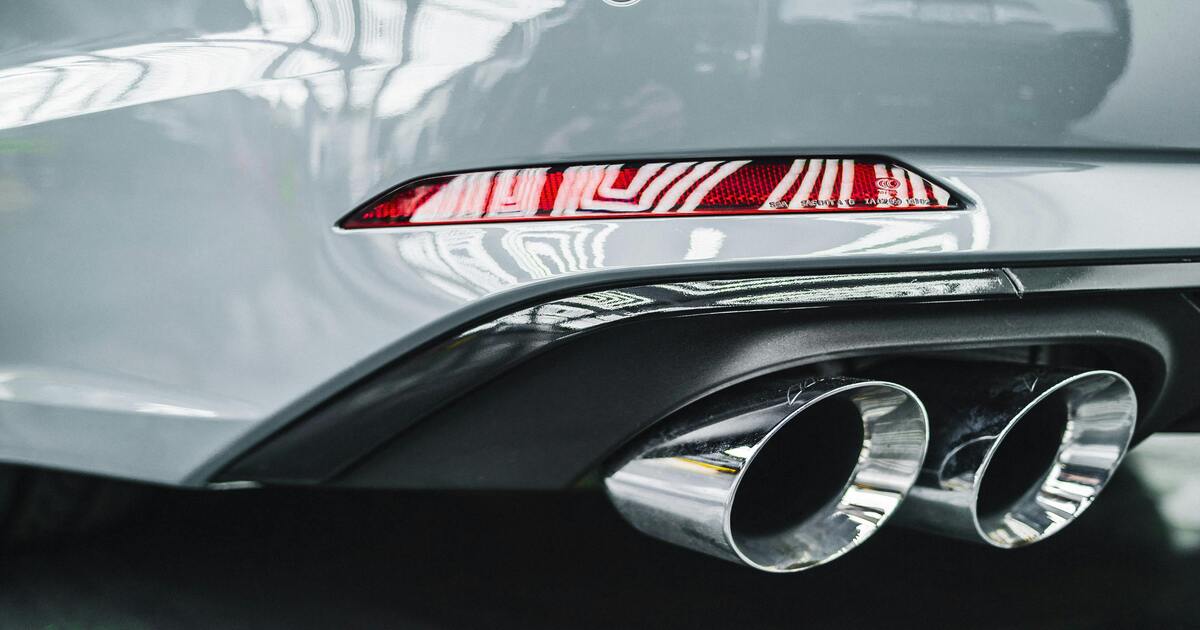
One of the primary functions of a muffler is to reduce the noise produced by the engine during combustion. As fuel burns in the engine's cylinders, it creates powerful explosions that generate loud sound waves. If your vehicle didn’t have a muffler, these sound waves would travel through the exhaust system and exit the vehicle, resulting in a noisy driving experience. Thus, mufflers (and the complete exhaust system) have the biggest impact on your car’s sound.
Mufflers utilise a series of chambers, baffles, and sound-absorbing materials to cancel out or absorb the sound waves produced by the engine. As the exhaust gases pass through the muffler, they encounter obstacles such as baffles and perforated tubes, which disrupt the flow of the gases and create opportunities for sound wave cancellation. On top of that, sound-absorbing materials, such as fibreglass or steel wool, are often used to further dampen the noise.
The Reduction of Vehicle Emissions
In addition to reducing noise, mufflers also play a crucial role in reducing vehicle emissions. As exhaust gases travel through the exhaust system, they contain harmful pollutants such as carbon monoxide, nitrogen oxides, and hydrocarbons.
Mufflers help to filter out these pollutants before they are released into the environment and reduce the vehicle's overall environmental impact. Most, if not all, modern mufflers are equipped with catalytic converters, which further reduce emissions by converting harmful gases into less harmful substances through chemical reactions.
The Impact of Mufflers on Engine Performance
While mufflers are primarily associated with noise reduction and emissions control, they can also have an impact on engine performance. One factor that affects engine performance is backpressure - the resistance encountered by exhaust gases as they exit the engine. Traditional mufflers, such as chambered mufflers, can create significant backpressure due to their restrictive design.
This can have a negative effect on engine performance, reducing horsepower and fuel efficiency. However, many modern muffler designs, and aftermarket mufflers in particular, are engineered to minimise backpressure while still providing effective noise reduction and emissions control. So, a muffler can be one of the best aftermarket exhaust upgrades if you are looking to change your car’s exhaust note and improve engine performance.
The Structure of a Muffler
We’ve explained what a muffler does, but to understand how mufflers achieve their various functions, we should also examine their internal structure. While the exact design may vary depending on the type and manufacturer, most mufflers consist of several key components:
- Inlet and Outlet Pipes: These pipes connect the muffler to the exhaust system, allowing exhaust gases to enter and exit the muffler.
- Chambers: Chambered mufflers contain multiple chambers separated by baffles or partitions. As exhaust gases pass through these chambers, sound waves are disrupted and reflected, leading to noise reduction.
- Baffles and Perforated Tubes: These internal components create turbulence in the exhaust flow, which helps to cancel out or absorb sound waves. Baffles are typically solid barriers, while perforated tubes feature small holes that allow exhaust gases to pass through.
- Sound-Absorbing Materials: Many mufflers are filled with sound-absorbing materials, such as fibreglass or steel wool. These materials absorb the sound waves and further reduce noise levels.
That being said, there are different types of mufflers, all of which have somewhat different designs.
3 Types of Mufflers
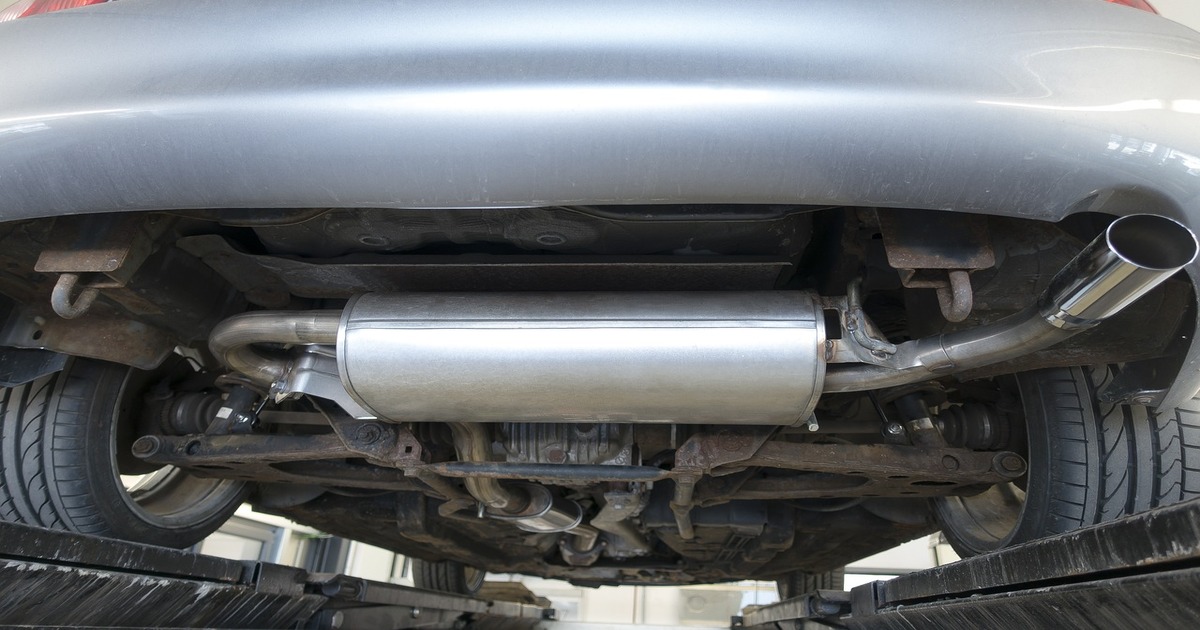
There are three different types of mufflers available on the market. Each type has a unique design and performance characteristics.
- Chambered Mufflers: Chambered mufflers have multiple internal chambers separated by baffles or partitions. As exhaust gases pass through these chambers, sound waves are disrupted and reflected, resulting in noise reduction. Chambered mufflers are known for their deep, mellow tone and are popular among enthusiasts seeking a classic exhaust note.
- Turbo Mufflers: Turbo mufflers use a series of perforated tubes and sound-absorbing materials to achieve noise reduction. These mufflers are designed to minimise backpressure and are often favoured for their balance of performance and sound quality.
- Straight-Through Mufflers: Straight-through mufflers (also called glasspacks or performance mufflers) have a simple, straight-through design that allows exhaust gases to flow freely with minimal obstruction. These mufflers offer excellent flow characteristics and are favoured by performance enthusiasts for their aggressive exhaust notes and improved horsepower. However, these mufflers are the least effective at reducing noise levels.
Materials Used in Mufflers
Besides the design itself, mufflers can also be made from different materials. They are typically constructed from durable materials such as stainless steel, aluminised steel, or titanium. Naturally, each material offers its own set of advantages and disadvantages in terms of durability, performance, and cost.
Stainless steel mufflers are known for their corrosion resistance and durability. They offer excellent longevity, and many people like them for their high-quality appearance. Aluminised steel mufflers are coated with an aluminium-silicon alloy, which also provides enhanced corrosion resistance but at a lower cost than stainless steel.
On the other hand, aluminised steel mufflers are not as durable as stainless steel ones. Still, they offer good performance and longevity for most applications and are prized for their cost-effectiveness. Finally, the most high-end mufflers are made from titanium.
Titanium mufflers are lightweight and offer an excellent strength-to-weight ratio. They are often used in high-performance applications where weight savings are critical, but they tend to be more expensive than stainless steel or aluminised steel mufflers. In general, titanium mufflers are used by people looking to get the best upgrades for their cars, regardless of the price tag.
Why Do Mufflers Go Bad?
Despite their importance, mufflers are not immune to wear and tear. Over time, factors such as rust, corrosion, and physical damage can cause mufflers to deteriorate and lose effectiveness. Exposure to moisture and road salt can cause the metal components of a muffler to rust and corrode over time.
Rust weakens the structural integrity and can lead to holes or cracks that allow exhaust gases to leak out. Mufflers are also vulnerable to damage from road debris, speed bumps, and other obstacles encountered during normal driving, even discounting offroading. The impacts can dent or puncture the muffler, compromising its ability to function properly.
The operating temperature of a car can also cause issues. High temperatures generated by the exhaust system can accelerate the degradation of muffler components, particularly the internal sound-absorbing materials. Over time, exposure to heat can cause these materials to break down and lose their effectiveness. Regular visual inspections can easily help you identify potential issues early and potentially prevent costly repairs or replacements.
Are Aftermarket Mufflers Upgrades Worth It?
You know now what mufflers do and how they work, so the only question left is - are aftermarket mufflers a worthwhile investment? With a wide range of aftermarket mufflers available, many drivers are tempted to upgrade their stock mufflers for improved performance and sound quality. However, ultimately, that depends on what you are looking to gain.
If you are looking to change the exhaust note of your vehicle, then upgrading your muffler is a must. Aftermarket mufflers can produce a louder, more aggressive sound compared to stock mufflers and they let you fine-tune the tone.
If you are primarily looking to improve the performance of your car, then mufflers are helpful but not the first step. While aftermarket mufflers can offer performance gains in terms of horsepower and torque, they are typically combined with other performance upgrades such as high-flow catalytic converters or headers to get the most impact.
There is one more thing you should be aware of if you are looking to get an aftermarket muffler - the legal considerations. There are noise restrictions laws and regulations and you could get fined if your car is over the accepted decibel limit. In Australia, each state and territory has indivual laws that apply to acceptable vehicle sound levels, so you should always check the specifics of your location.
However, all of the state and territory laws are based on the Australian Road Rules, so they will be extremely similar in most cases. In general, the maximum acceptable noise level is:
- 96 decibels for vehicles built before 1983
- 90 decibels for vehicles built after 1983
Where Can You Buy a New Muffler?
Whether you wish to upgrade your muffler or not is up to you, but if you do, we can help you out. Perform-Ex Auto has been providing high-quality but affordable aftermarket parts to Australians since 1973. We have everything you could need to upgrade your exhaust system, and that includes aftermarket mufflers.
Simply place your order online, and we’ll ship it right to your address. And if you have any questions or need advice from our team, please feel free to contact us, we’ll gladly help you out however we can.
Leave a comment



